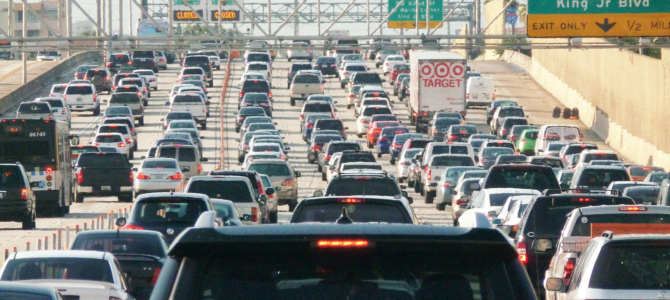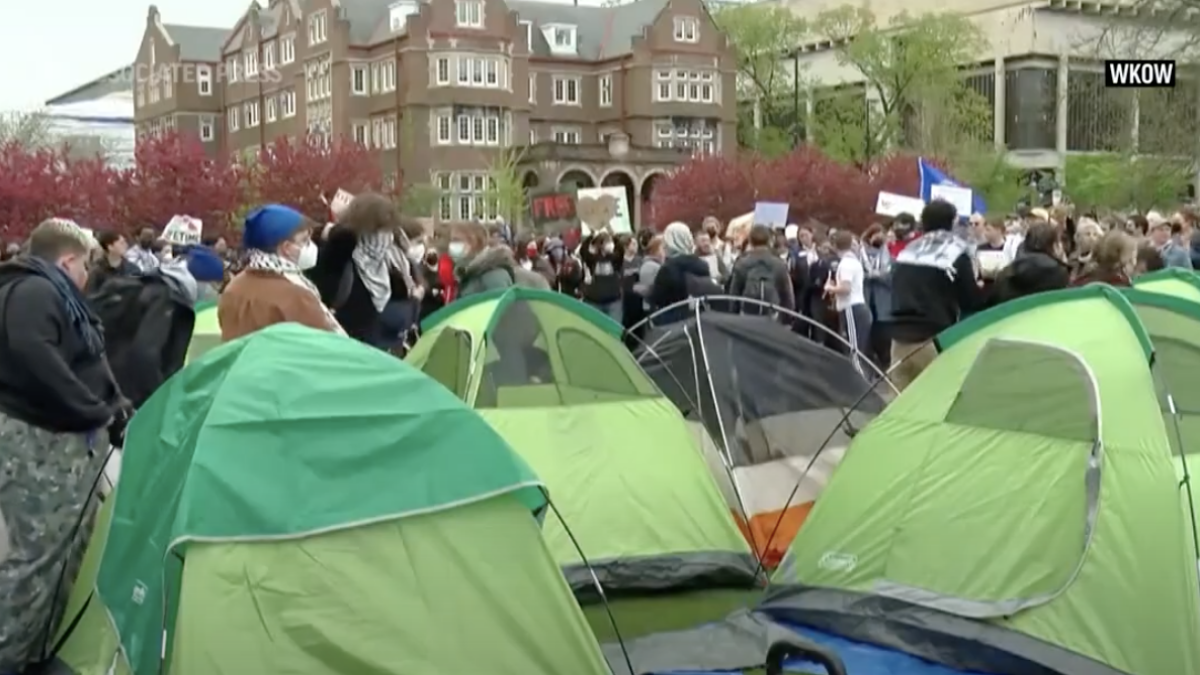
Last Thursday afternoon, I walked into my seminary classroom a few minutes early to set up for the day’s lecture. On this day, as usual, multiple conversations were in progress. In one, students were complaining about our city’s traffic problems, and it was easy to join the discussion.
On another side of the room was a more involved and personal conversation. The phrase I overheard was, “I’m not an atheist yet.” I couldn’t help but inquire about that. A young woman was telling another student about her family’s concern regarding her choice to attend seminary.
Apparently, her family expressed a worry that is not uncommon among devout Christians — that a seminary education can lead students to abandon their faith. To be sure, some seminaries do seem bent not just on encouraging students to think critically about their faith (a necessary part of a seminary education) but also on overturning anything that resembles traditional or orthodox belief (not one of my goals). This student was simply testifying that, contrary to her family’s fears, her semesters of study had not led to apostasy, at least not yet.
These were very different conversations. Only later did the following connection occur to me: It is not seminary but heavy vehicle traffic that could lead to atheism.
City Traffic Is Usually Horrible
Our traffic is bad. If you are in a large or growing city in this country, you probably have a similar experience. Most city-dwellers can relate to the opening scene of “Office Space” (1999). The problem is not just the traffic today. It’s that over a span of a few short months, it gets visibly worse.
Same roads, more cars. There’s not really a rush “hour” anymore. The “hour” is now the small slice of time the roads are not backed up. Anytime I pass smoothly through a normally congested thoroughfare, I feel like I won the lottery, even if it is 10:30 p.m. It’s exhilarating to reach the speed limit and stay there.
My city’s official responses are risible. The local news recently summarized the city council’s two latest solutions. First, saying more people should take public transportation. For most of us, that means sitting on a bus that wades through the same traffic we do — but also makes many more stops and doesn’t quite come near our homes or workplaces. On a good day with public transportation, my seven-mile journey, a comparatively short commute, would take about two hours each way.
The second solution? More people should bike. Among the many problems with this suggestion is the extreme danger most commuters would put themselves in by biking. Several months ago, a bike lane was added on the right side of the main road nearest my house, narrowing the three vehicle lanes in each direction. Thus, vehicle traffic is more dangerous, which makes the adjacent bike lane too treacherous for a sane person to risk.
I have seen exactly one person using the bike lane in its 10 months of service. Of course, traffic is a wicked problem, not easily solvable. But one would think a major city could do better than, “People need to drive less.”
Traffic Has No Redeeming Factor
What does all this have to do with atheism? Sitting in traffic must be one of the most self-consciously soul-destroying activities common to modern man. Think about it. Some activities are soul-crushing over time, but because they bring temporary distraction and pleasure, the agent may not be fully aware of the harmful effects.
For example, the person who spends seven hours a day looking at screens for entertainment is probably unaware he is becoming less human each day, but he is at least having a good time doing it. On the other hand, some activities are difficult or seem like a waste of time, but you trust they are leading to a good end. I do hate jogging, but I am confident I’m healthier for doing it.
But sitting in traffic is not like these things. Unlike other difficult but rewarding necessities of life, it is hard to see the redeeming quality of a journey that takes twice as long as it should. And no one has ever been deceived by the amusement or indulgence of traffic. Everyone is fully aware that something bad is happening here, even if we don’t reflect on just how bad it is.
As anecdotal evidence, whenever I tell someone that sitting in traffic is soul-destroying, no one yet has charged me with gross exaggeration. Judging by their faces, a skeptical thought may initially cross their mind — “this is just hyperbole” — but then, after a quick second thought, they nod in defeated agreement.
Questioning the Problem of Evil
The most notoriously intractable problem for classical theism is the problem of evil. Normally, this criticism is expressed on a grand scale. How can a good God permit Hitler and the Holocaust? Or it trades in the smaller but still tragic experiences. How can God allow the death of this child? Although I think it is incoherent for an atheist to raise the problem of evil, as a theist, I can understand and feel its force.
As for the more ordinary, quotidian evils of life, though, the philosophy textbooks should add into their chapter on the problem of evil a subsection on traffic. There’s just something dreadful about spending one’s life this way, day in and day out.
Sitting in the middle of a downtown highway in triple-degree heat, removed as far as possible from natural beauty and wonder, surrounded by nothing but a concrete jungle and an endless sea of vehicles hitting gas and brake (the one as hard and fast as the other), I have questioned not so much the existence as the goodness of God. I know of no better reflection of the disenchantment of the modern world than a traffic jam.
In another film, “Falling Down” (1993), the opening scene portrays what can happen when a traffic jam triggers an angry and frustrated person. This character abandoned his car on the highway-turned-parking lot and went on a violent rampage in a nearby convenience store.
Traffic could drive even a saint to think, say, and do things almost no other conceivable situation could elicit. Imagine what such traffic does to the rest of us who aren’t saints? How does the commute to work affect the average worker? How does the commute home affect home life? No one would argue positive effects. Now multiply that individual, daily experience by millions of people. Social media isn’t the only thing making our society angrier.
It’s Hard to See the Creator Through the Commute
Through intentional effort, some people do redeem the commute. A combination of podcasts and prayer can certainly help. My special problem is that I am unprepared when my 12-minute commute turns into 25 minutes. I’ve got nothing. Three quasi-classic rock stations that play the same 100 songs. A person can only take so much of Bruce Springsteen’s “Glory Days.”
Despite all the good automobiles have brought to the world, they have also come with many drawbacks and some unmitigated evils: Removal from nature into an artificial and disenchanted world, frustration, anger, loneliness, a sense of lost and wasted time, depression, stress, actual danger, and bad radio — and these are all part of contemporary life without traffic! Traffic just palpably worsens them. In the midst of the traffic jam, it can be hard to see the beauty of creation and of its Creator.
People are rarely reasoned out of their faith. Sometimes, a faith crisis is the result of a personal tragedy, although such tragedies are just as likely to strengthen one’s faith and dependence on God as to undermine these. More typically, though, believers fall away not because of one factor but gradually through a series of life choices. Some choices are overtly sinful, but others are unavoidable and inevitably soul-crushing. Traffic alone probably wouldn’t shake the trust of a true believer, but it doesn’t help.
I am pleased, of course, that my student’s faith has not wavered during her time in seminary. But I wonder if her family should be more concerned with her commute than with her education. I jest only a little.
The upshot is that if traffic is truly soul-destroying, then it is more than merely a frustrating aspect of life. For the believer, or for anyone concerned with soul care or mental health, the commute is a spiritual test and one that does not attract the kind of attention it deserves. So, if you tell me you are having doubts about God’s existence, forgive me if my knee-jerk reaction is to ask what your commute is like.









